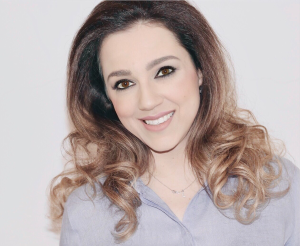11 February 2023 is International Day of Women and Girls in Science. Women and girls represent half of the world’s population and, therefore, also half of its potential. We believe that health is improved by great ideas, but great ideas only make an impact when they are put into practice. To achieve this, we need to ensure are making the most of everyone with innovative potential in the health and life sciences sector. Over the past decades, the global community has made a lot of effort in inspiring and engaging women and girls in science. Yet women and girls are often still excluded from participating fully in science.
We spoke to some of our colleagues about what science means to them, what made them pursue science as a career and why representation in STEM is so important.
Kristina Tsipi, Medicines Optimisation Lead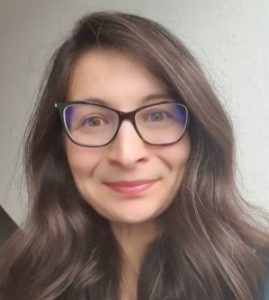
From an early age, I knew I wanted to do something related to medicine and improve health outcomes for patients. I have always found the human body so fascinating and complex and have always been curious to understand how things in nature work and how we work.
Pharmaceutical science combines a broad range of scientific disciplines, critical for discovering and developing of novel drugs and therapies making a huge impact on improving patients’ lives. Through my current role at Health Innovation East I am able to support innovation and bring that closer to our patients. As a woman working in the healthcare sector, I am optimistic about the present and future of women and girls in STEM careers. I work with wonderful and inspiring women every day like the ones below, who are proof you can thrive in STEM. If you are interested in exploring the beauty of science and a career in the STEM industry you should know you belong here!
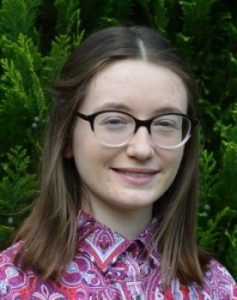 Amy Selby, Information Analyst
Amy Selby, Information Analyst
“Science and the other STEM subjects have always been a large part of my life but I was unsure how this passion would translate into a career. This dilemma persisted during my degree in Natural Sciences when it often felt like the academic route was the only way to be a ‘scientist’. The solution for me was data science in the healthcare industry. My role at Health Innovation East allows me to combine the data inquisitiveness of science with the potential for real-world impact.”
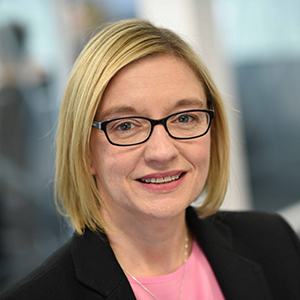 Dr Louise Jopling, Commercial Director
Dr Louise Jopling, Commercial Director
“As a child I wanted to be a vet, which sparked a lifelong love of science. Throughout my education, my career in research and immunology and now in my role supporting the implementation of innovation in healthcare, I have seen how science has the capacity to understand and change the world around us for the better.”
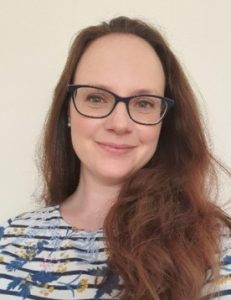 Eleanor Hall, Principal Advisor (Health Informatics)
Eleanor Hall, Principal Advisor (Health Informatics)
“I found a love for the biological sciences at high school and achieved a degree in molecular biology which focused on understanding the underlying mechanisms of disease. My career has focused on facilitating researchers to further enhance our understanding and translate findings directly to patients though clinical trials. My STEM background helps me in my current role, which is all about making the best use of the vast amounts of health data which have been collected over the years for researchers to answer questions like “which medication will work most effectively on this patient to treat their condition”. The potential for personalised medicine is so exciting, and I’m grateful to be playing a small part in helping to make it a reality. I’m proud of the impact I am making and hope that more women and girls see their own potential to change the world through pursuing science.”
Lamprini Kaftantzi, PhD, Senior Advisor (Commercial)
“I think biology as a science is unique and inherently fascinating because of the complexity of living things and how they interact with each other and the environment. Following my biology degree, I chose to specialise in human molecular genetics and upon completion of my studies, I joined an academic lab where I conducted biomedical research to support diagnosis and treatment of infectious human disease.
“My life sciences background and hands-on experience in laboratory research have been invaluable in my current role. First, molecular genetics studies and developments provide the foundation for many of the innovations that we currently support at Health Innovation East. Second, I understand and am motivated by the excitement and contentment the scientists/innovators we meet feel from piecing the jigsaw puzzle together and solving a problem in their field.
“I think as women scientists we have an opportunity every day from our posts to promote full and equal access to and participation in science for women and girls. Bringing their unique perspectives in is crucial for addressing the healthcare challenges and the only way to ensure that the talent and skills pool is expanded. As I draw from my own experience of inspiration and support I had from female colleagues throughout my studies and career, I feel it is as much a pleasure as it is a duty to pay that forward.”
Dr Sarah Robinson, Director of Delivery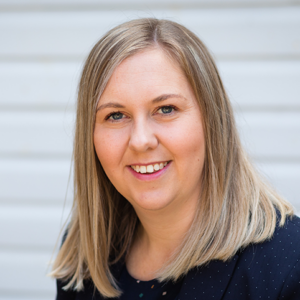
“I quickly developed a love for neuropsychology (in particular an understanding how the brain develops from childhood, into adulthood and into later life and understand the impact that this has on how we behave or don’t behave) during my undergraduate degree. I took my STEM studying further with degrees in forensic and clinical psychology. Not only has the subject matter influenced how I am as a leader of a team at Health Innovation East and understanding people’s behaviours but having training in hypothesis testing and statistical analysis further supports my ability to understand how we measure impact of complex interventions in complex setting and contexts.”
Find out more about the United Nations’ International Day of Women and Girls in Science
Visit the website of view these short films.
Learn more about the AHSN Network’s commitment to diversity
Read more about our diversity pledges.
Our commitment to celebrating diversity
Diversity isn't a box to check, it is a strength to build upon which makes us better. Learn about our diversity pledges.
Read more